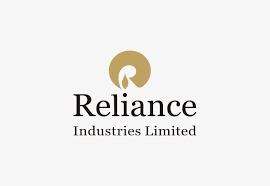
Is Reliance Industries Stock Halal to Invest? Key Facts for India
By Fardeen
•Yes, Reliance Industries Ltd (RIL) is considered a halal company and stock to invest
Investing in the stock market can be a complex decision, especially for those who follow the principles of Halal investment. One of the most prominent companies in India is Reliance Industries. This article explores whether Reliance Industries stock is Halal to invest in by examining its history, financial performance, and compliance with Halal investment principles. We will also provide a detailed analysis of Halal investment criteria and the key factors that Muslim investors should consider.
Introduction to Reliance Industries Stock
Reliance Industries Limited (RIL) is one of the largest and most influential companies in India. Its diverse portfolio spans various sectors, including petrochemicals, refining, oil, telecommunications, and retail. Understanding the company’s stock can help investors make informed decisions about whether it aligns with their investment principles.
Brief History of Reliance Industries
Reliance Industries was founded by Dhirubhai Ambani in 1966. Initially a small textile business, the company has grown into a massive conglomerate over the decades. Today, RIL is led by Mukesh Ambani, Dhirubhai's son, and continues to expand its presence globally.
Understanding Reliance Industries Stock
The stock of Reliance Industries is listed on the Bombay Stock Exchange (BSE) and the National Stock Exchange (NSE) of India. It holds a significant position in market indices, including the NIFTY 50 and the BSE SENSEX. The stock's performance is often seen as a barometer of the Indian economy.
Recent Performance of Reliance Industries Stock
In recent years, Reliance Industries stock has shown impressive growth. The company has made strategic investments in technology, renewable energy, and e-commerce, which have contributed to its robust financial performance. Analysts continue to have a positive outlook on the stock due to its diverse portfolio and innovation-driven approach.
Market Position of Reliance Industries
Reliance Industries maintains a strong market position due to its diverse business operations. The company's ventures in telecommunications with Jio, retail with Reliance Fresh and Trends, and its traditional stronghold in oil and petrochemicals provide it with a competitive edge over its peers.
What is Halal Investment?
Halal investment refers to investment practices that comply with Shariah (Islamic law) principles. These investments avoid industries and practices that are considered haram (forbidden) and focus on ethical and socially responsible avenues. Investing in halal options ensures that one's financial endeavors are aligned with their spiritual beliefs. Additionally, halal investments often prioritize transparency and risk-sharing, which can lead to more equitable and fair business outcomes. Sectors such as finance that involve excessive speculation or interest-based earnings are strictly avoided. This careful selection process underscores the importance of ethical considerations in financial decisions.
Definition of Halal Investment
Halal investment is the act of investing in businesses and financial instruments that comply with Islamic law. It avoids businesses involved in alcohol, gambling, pork, and interest-based financial services. Halal investment emphasizes profit-sharing and ethical practices.
Principles of Halal Investment
The primary principles of Halal investment include the avoidance of riba (interest), gharar (excessive uncertainty), and haram (forbidden) activities. It promotes risk-sharing, asset-backed investment, and ethical screening of companies.
Differences Between Halal and Conventional Investments
While conventional investments may involve interest-based earnings, Halal investments do not. Similarly, certain ethical screens are applied in Halal investments to avoid businesses that engage in haram activities, making it inherently different from conventional investments.
Importance of Halal Investment for Muslim Investors
Halal investment is significant for Muslim investors as it aligns their financial activities with their faith. This form of investing not only seeks profitable opportunities but also ensures that the investments are ethically and socially responsible.
Criteria for Halal Investment in Stocks
Investing in stocks that comply with Islamic principles involves a few established criteria, such as financial ratios, ethical business activities, and compliance with Islamic business guidelines. These stringent criteria ensure that Muslim investors avoid companies engaged in prohibited activities such as gambling, alcohol production, and interest-based financial services. Evaluating these stocks requires a thorough analysis of the company's debt ratio, interest-related income, and overall business practices. It's essential for investors to continually monitor their investments to maintain Halal compliance. Furthermore, consulting with Islamic finance experts can provide additional assurance and guidance on Shariah-compliant investments.
Financial Ratio Requirements
Shariah-compliant stocks must meet specific financial ratio requirements. Generally, a company’s total debt should not exceed 33% of its market capitalization. Moreover, interest-bearing income should be below 5% of total revenue.
Ethical Screening Criteria
Ethical screening is crucial in Halal investment. Companies involved in haram activities like alcohol, gambling, and pork products are excluded. Ethical screening ensures that investments are in line with moral and social values.
Business Activities Compliance
Companies must engage in permissible (halal) business activities. This avoids investment in industries such as gambling, conventional banking, and alcohol production, ensuring that the stock adheres to Islamic guidelines.
Zakat Calculation in Halal Investing
Zakat, a form of almsgiving, must be calculated on Halal investments. Investors must pay 2.5% of their total wealth annually. This ensures the purification of wealth and assists in the equitable distribution of wealth within the community.
Is Reliance Industries Stock Halal to Invest?
Investors often wonder, "Is Reliance Industries Stock Halal to invest in?" The answer to this question requires a comprehensive examination of the company's business practices, particularly through the lens of Shariah law. It is essential to analyze whether Reliance Industries engages in any non-compliant activities such as interest-bearing transactions (riba) or gambling (maysir). Furthermore, the proportion of income that comes from non-halal activities should be minimal and strictly evaluated. Islamic scholars and financial experts may provide differing viewpoints, making it important for individual investors to consult multiple sources or seek certified halal investment advisors when making their decision.
The question of whether Reliance Industries stock is Halal to invest requires a detailed Halal analysis to compare it against the criteria for Halal investment.
Halal Analysis of Reliance Industries Stock
A Halal analysis involves evaluating Reliance Industries' business activities, financial ratios, and ethical compliance. This determines if the stock aligns with Islamic investment principles like avoiding riba and haram activities.
Scholarly Opinions on Reliance Industries Stock
Islamic scholars have varying opinions on Reliance Industries stock. Some scholars may deem it Shariah-compliant, while others may not, based on different interpretations of Islamic law. It’s crucial to consult with trusted Shariah experts.
Shariah Compliance Reports
Several financial institutions and advisory firms issue Shariah compliance reports. Reviewing these reports can provide insights into whether Reliance stocks meet the necessary Halal criteria for Muslim investors.
Common Concerns About Investing in Reliance Industries Stock
Common concerns include the company's involvement in activities that may be borderline haram, such as minor interest income or non-ethical business practices. Investors must consider these factors before making investment decisions.
Facts You Should Know About Reliance Industries Stock
Before investing, it is essential to understand key facts about Reliance Industries, including its ownership, revenue sources, subsidiaries, and future prospects.
Ownership and Management of Reliance Industries
Reliance Industries is a family-run business, currently chaired by Mukesh Ambani. The management team includes experienced professionals overseeing various sectors, ensuring the company’s robust growth and governance.
Revenue Sources of Reliance Industries
The company has diverse revenue sources ranging from petrochemicals, refining, oil, telecommunications, and retail. This diversification mitigates risks and enhances financial stability.
Subsidiaries and Diversification
Reliance Industries has several subsidiaries, including Jio Platforms, Reliance Retail, and Reliance Petroleum. This diversification allows the company to hedge against sector-specific risks and capitalize on various market opportunities.
Future Prospects of Reliance Industries Stock
The future prospects of Reliance Industries appear promising, with ongoing investments in technology, digital services, and renewable energy. These prospects indicate potential for sustained growth and lucrative returns for investors.
Steps to Assess Halal Compliance in Stocks
Assessing Halal compliance in stocks involves several critical steps that ensure the investments align with Islamic principles. One of the first steps is to evaluate the company's core business activities, ensuring they do not conflict with Sharia law. Additionally, factors such as debt ratios and interest-based income require thorough scrutiny. It’s also essential to check if the company engages in any non-permissible (Haram) transactions. Investors should also consider the opinions of Islamic scholars and Halal certification agencies before making any decisions. Regular monitoring and auditing are necessary to maintain ongoing compliance with Halal investment guidelines.
Research and Data Collection
Begin by collecting comprehensive data about the company, including financial statements, business activities, and corporate governance practices. This information is vital for a thorough Halal analysis.
Evaluation of Debt Levels
Evaluate the company's debt levels to ensure they do not exceed the permissible limits for Halal investments. Ideally, total debt should be less than one-third of the company’s market capitalization.
Reviewing Business Activities
Scrutinize the company’s business activities to ensure they comply with Islamic principles. Avoid companies involved in prohibited activities like gambling, alcohol, and non-Islamic financial services.
Consulting with Shariah Experts
Consulting with Shariah experts or relying on Shariah compliance advisory firms can provide valuable insights and ensure that the investment is in line with Islamic principles.
Reliance Industries Stock: Risks and Rewards
As with any investment, investing in Reliance Industries stock comes with its own set of risks and rewards that must be carefully evaluated. Understanding the volatility of the stock market, particularly in India, can help investors make more informed decisions. It's crucial to assess the company's financial health, market position, and future growth prospects. Additionally, potential investors should consider environmental, social, and governance (ESG) criteria, as these play a significant role in sustainable investing. By conducting thorough research and possibly seeking advice from financial advisors, investors can better navigate the complexities involved in investing in Reliance Industries stock.
Potential Financial Gains
Reliance Industries has shown consistent financial growth. The diverse business model and strategic investments indicate potential for substantial financial gains, making it an attractive investment option.
Market Volatility and Risks
Investors must consider the market volatility and inherent risks. Despite a strong market position, fluctuations in global markets, regulatory changes, and economic downturns can impact stock performance.
Regulatory and Compliance Risks
Reliance Industries must comply with various regulatory requirements, both domestically and internationally. Regulatory changes can affect business operations and financial performance, posing risks to investors.
Long-term Investment Benefits
Investing in Reliance Industries can be beneficial for long-term investors due to the company’s ongoing innovation and market expansion strategies. This can yield significant returns over time.
Alternatives to Reliance Industries Stock for Halal Investment
There are alternatives to Reliance Industries stock for those seeking Halal investments, including other Halal stocks, real estate, and Islamic mutual funds. For instance, investing in Halal-compliant tech companies can be a lucrative option, aligning with both religious beliefs and potential financial growth. Additionally, Shariah-compliant real estate offers stability and continuous rental income, making it an attractive long-term investment. Islamic mutual funds are also gaining popularity, providing diversified and ethically responsible portfolios. By exploring these options, investors can ensure their investments are both financially rewarding and compliant with Islamic principles.
Overview of Other Halal Stocks
Various stocks in the Indian market comply with Shariah principles. Companies in sectors such as technology, pharmaceuticals, and consumer goods often offer Halal investment And Check the Top 10 Halal Stocks.
Top Performing Halal Stocks in the Indian Market
Identifying the top-performing Halal stocks involves looking at their financial performance, ethical business practices, and compliance with Shariah principles. Some leading examples include Tata Consultancy Services (TCS) and Hindustan Unilever Limited (HUL).
Real Estate as a Halal Investment Option
Real estate is another popular option for Halal investment. Property investment avoids the complications of riba and ensures steady rental income, aligning well with Islamic principles.
Islamic Mutual Funds
Islamic Mutual Funds invest in Shariah-compliant stocks and provide diversification benefits. These funds are managed by experts who ensure adherence to Islamic investment guidelines.
Conclusion: Is Reliance Industries Stock Halal to Invest?
Summary of Key Points
Reliance Industries is a leading conglomerate with a strong market position and diverse revenue sources. While it shows potential for significant returns, Muslim investors must carefully consider whether it aligns with Halal investment principles.
Final Verdict on Reliance Industries Stock
Reliance Industries stock may or may not be Halal depending on various aspects, including financial ratios, business activities, and Shariah compliance reports. Consulting with Shariah experts is essential for a final decision.
Recommendations for Muslim Investors
Muslim investors should assess the compliance of Reliance Industries stock with Halal principles and consider diversifying with other Halal stocks, real estate, or Islamic mutual funds to mitigate risks and maximize returns.
Future Prospects in Halal Investing
The Halal investment market is growing, with increasing opportunities across various sectors. Adopting a well-researched and principled investment strategy can ensure that financial goals align with ethical and religious beliefs.
FAQs
Is Reliance Industries involved in any haram activities?
While Reliance Industries may have some minor non-Islamic income, reviewing detailed Shariah compliance reports can provide clarity on its permissibility.
How can I be sure that my investment is Halal?
Consulting with Shariah advisors and ethical screening of stocks can help ensure that your investments are Shariah-compliant.
Are there any trusted sources to check for Halal compliance?
Yes, several financial institutions and advisory firms provide certification and reports on Shariah-compliant stocks.
What are other good Halal stocks to invest in India?
Tata Consultancy Services (TCS) and Hindustan Unilever Limited (HUL) are examples of reputable Halal investment options in India.
Can real estate be considered a Halal investment?
Yes, real estate investment is generally considered Halal as it avoids interest and ensures steady rental income.


